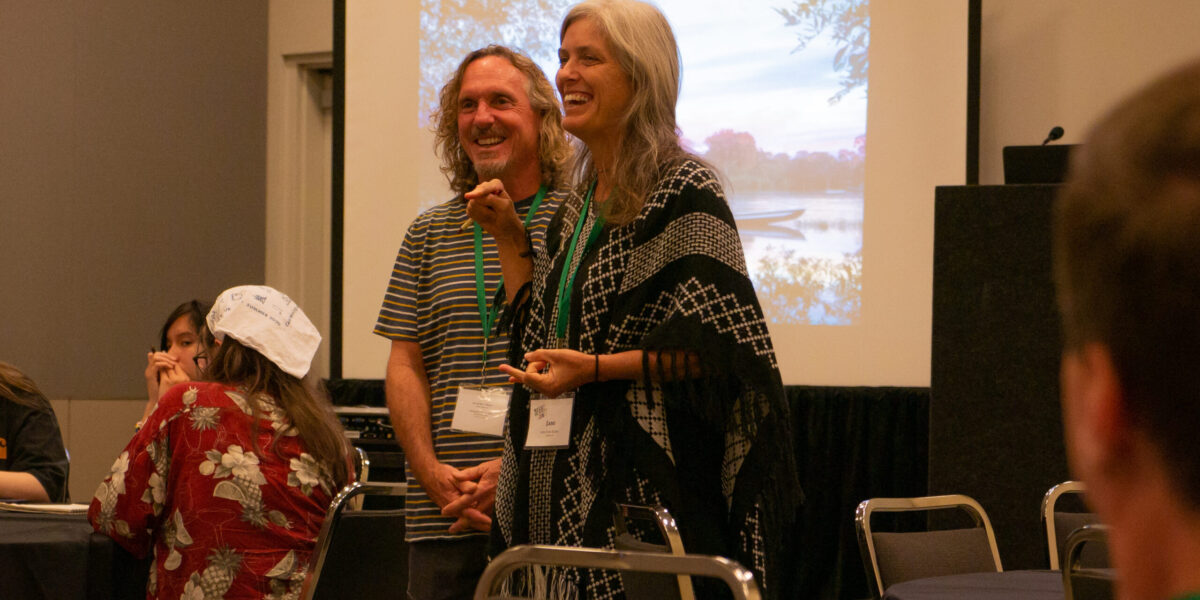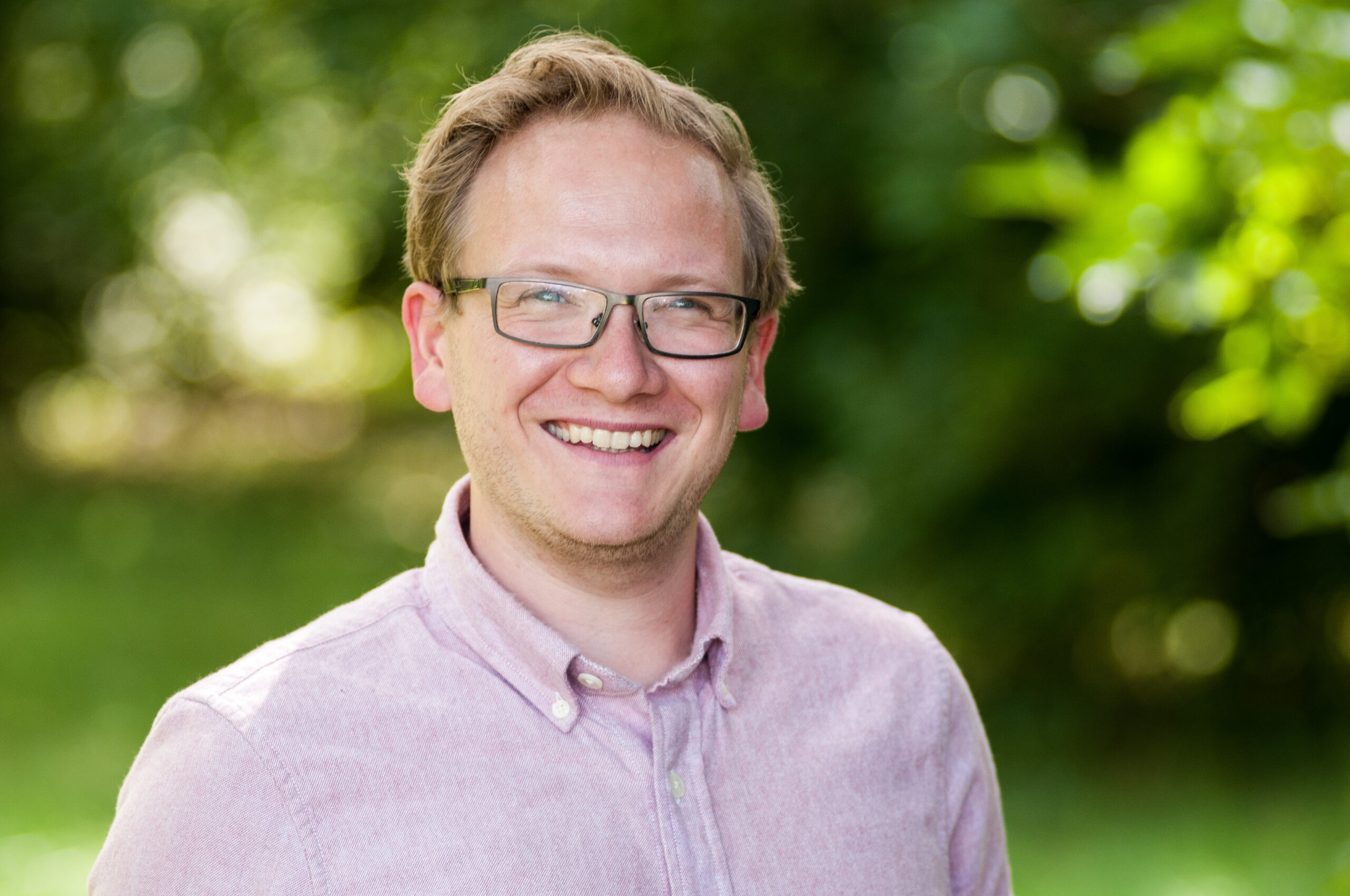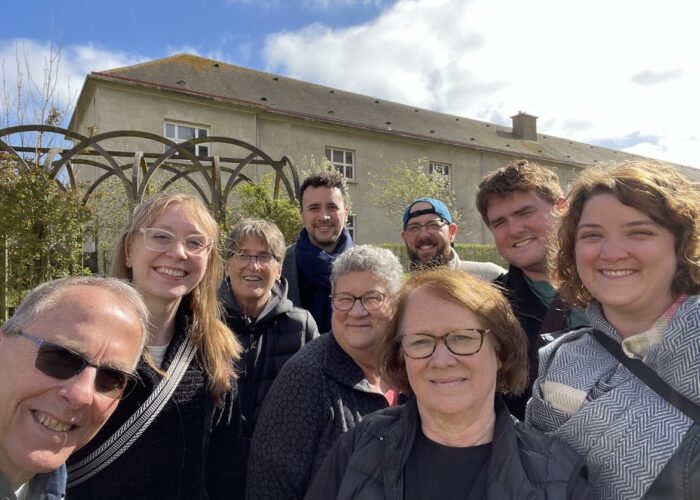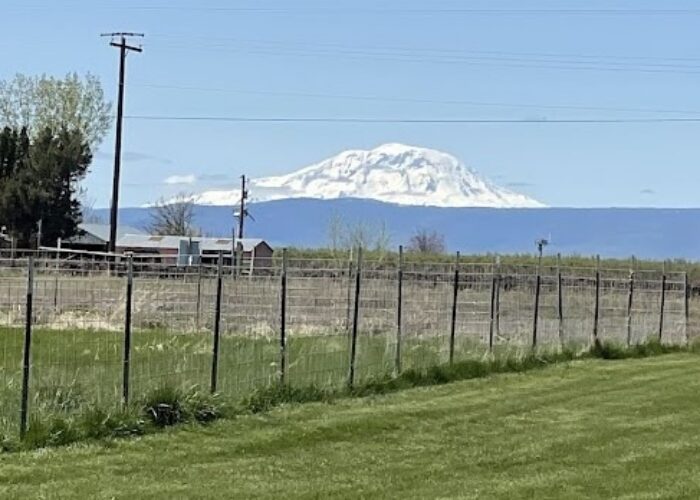CINCINATTI, Ohio (Mennonite Mission Network) – At the start of their seminar, ‘Changing the Narrative: Climate What?’ Jane and Jerrell Ross Richer passed out papers to each table with a single word printed on them. Environmentalist. Conservationist. Agriculturist. Hunter-gatherer. Then the questions started. What does your table’s word mean to you? What kind of response would your table’s person have to climate change? Which one do you relate to?
The answers from attendees were varied, but none felt a close relation to the hunter-gatherer. Nor did the attendees think that hunter-gatherers would have a strong response to climate change. The Ross Richers, however, had a different viewpoint. Hunter-gatherers, they explained, have a deep desire to protect the land, and to push against climate change, since they are the one group that survives directly through the plants and animals that are already thriving in a given place.
And they had the stories to prove it.
For half a given year, Jane, Jerrell and their family work with indigenous church leaders as well as children, youth and families in the Ecuadorian rain forest, and work the other half of the year as educators in the U.S.
Through their seminar on Wednesday afternoon, the Ross Richers gave a window into the lives of the Cofán people they live and work with in Zábalo, a small village in the Ecuadorian rain forest. The Cofán people are hunter-gatherers, and therefor have a deeply rooted interest in protecting the one million acres of land they own. They have instituted strict bans on exporting food or plant materials from the area, and instead invite visitors into their community through eco-tourism. Cofán-led efforts to rehabilitate the local Charapa turtle population have turned the once-rare turtles into a common sight along the rivers that the Cofán people use as roads to navigate from place to place.
The Ross Richers emphasized that while the stereotype of a hunter-gather lifestyle might be of a group that moves from place to place once they have exhausted local food sources, in practice, hunter-gatherers are much more aware and careful with the land around them than other groups might be.
"The Cofán hunters and gatherers are researchers," explained Jane. "They’ve been living on this land for thousands of years, they’ve done a lot of research about a lot of plants, they know what to eat, and they know the medicinal plants."
This sense of place also extends to faith and spirituality. Where a more agriculturist society puts an emphasis on time and salvation from a current condition, hunter-gatherers put a much greater emphasis on harmony in the place where they currently live. In a sense, shalom.
"[Cofán people] see the whole community as being all of nature," said Jane. "What if we started to see the tree in our backyard as part of our community? What if we started recognizing the squirrels in our backyard? Think about if you could see some of the things in your community as being more than just the people in your community."





